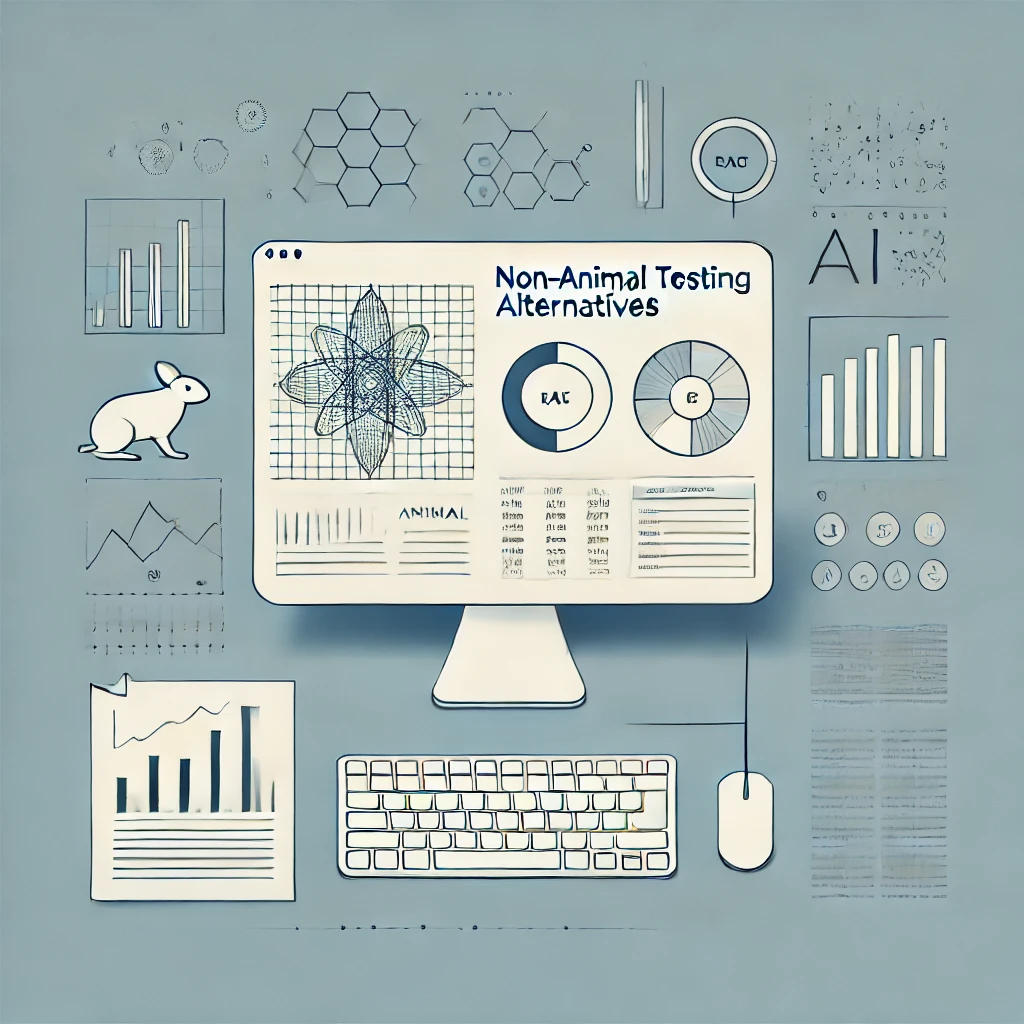Looking for aliens is hard because there are so many planets that could have life in our galaxy. But now, scientists are using artificial intelligence (AI) to help them in the search. The Seti Institute and the National Radio Astronomy Observatory are using AI to go through a lot of data from the Very Large Array facility. This special AI software can handle a huge amount of data every second, which helps scientists look for new kinds of radio signals from aliens.
Before, scientists were only looking for signals that are like the ones we use. But now, AI can help them look at lots of different signals and see if there are any patterns. This means they can find alien technology that uses different kinds of radio signals. Another project called Breakthrough Listen is using AI to search a million stars and 100 galaxies for real signals from aliens.
AI is also being used to look for signs of life on Mars. The Perseverance rover has found some organic compounds, but scientists aren’t sure if they come from life or not. The Carnegie Institution for Science is using AI to study rocks and see if there are any signs of life. The AI can tell if something is alive or not with almost 90% accuracy, which is really cool.
Even though AI has helped a lot, scientists still need to do more research to be sure. They need to look at more data and use other models to check their results. But as they collect more data and learn more, the chances of finding aliens, if they exist, are getting better. It’s a slow process, but they’re making progress.
Original news source: How AI is helping the search for extraterrestrial life (BBC)
🎧 Listen:
Slow
Normal
Fast
📖 Vocabulary:
| 1 | aliens | Creatures from outer space |
| 2 | galaxy | A huge system of stars, planets, and other space stuff held together by gravity |
| 3 | artificial intelligence (AI) | The ability of machines to think and learn like humans |
| 4 | data | Information, especially facts or numbers, collected to be examined and considered |
| 5 | Very Large Array | A big facility that uses antennas to observe the sky |
| 6 | radio signals | Waves used for communication, like for your phone or radio |
| 7 | patterns | Regular and repeated ways in which something happens or is done |
| 8 | technology | The use of scientific knowledge for practical purposes, especially in industry |
| 9 | organic compounds | Chemicals that are the building blocks of life |
| 10 | Perseverance rover | A robot that explores the surface of Mars |
| 11 | Carnegie Institution for Science | An organization that does scientific studies |
| 12 | rocks | Hard, solid parts of the Earth’s surface |
| 13 | accuracy | How close something is to being right or true |
| 14 | research | Systematic investigation to establish facts and reach new conclusions |
| 15 | progress | Moving forward or developing in stages |
Group or Classroom Activities
Warm-up Activities:
– News Summary
Instructions:
1. Divide the class into small groups.
2. Assign each group a specific section of the article.
3. In their groups, students must read and discuss their assigned section.
4. Each group must then summarize their section in a clear and concise manner.
5. Groups take turns presenting their summaries to the class.
– Opinion Poll
Instructions:
1. Divide the class into pairs.
2. Each pair must discuss and form an opinion on the following question: “Do you think artificial intelligence will help scientists find evidence of alien life?”
3. After discussing, each pair must write down their opinion and reasons for their choice.
4. Once everyone is ready, conduct a class-wide poll by having each pair share their opinion and reasoning.
5. Record the results and facilitate a class discussion about the different opinions.
– Vocabulary Pictionary
Instructions:
1. Write down various vocabulary words from the article on separate pieces of paper.
2. Divide the class into teams.
3. One student from each team must come to the front of the class.
4. Show the chosen student a vocabulary word (without the rest of the team seeing).
5. The student must then illustrate the word on the board while their team tries to guess the word.
6. The team that guesses correctly earns a point.
7. Repeat the process with new students and words until all the vocabulary words have been used.
– Keyword Taboo
Instructions:
1. Write down important keywords from the article on separate index cards.
2. Divide the class into two teams.
3. Each team takes turns selecting a player to be the “guesser” for that round.
4. The guesser must stand in front of their team while the other team members try to describe the keyword on their card without using any of the forbidden “taboo” words.
5. The guesser must try to correctly guess the keyword based on the descriptions given by their team.
6. If the guesser’s team successfully guesses the keyword within a certain time limit, they earn a point.
7. Repeat the process with new guessers and keywords until all the keywords have been used.
– Think-Pair-Share
Instructions:
1. Ask the students to individually think about the following question: “How do you think the use of artificial intelligence will impact future scientific discoveries?”
2. After a few minutes, have the students pair up and discuss their thoughts with their partner.
3. Once the students have had a chance to share their ideas, bring the class back together for a group discussion.
4. Select a few students to share their thoughts with the whole class and facilitate a discussion on the topic.
🤔 Comprehension Questions:
1. How are scientists using artificial intelligence (AI) to help them search for aliens?
2. What were scientists previously only looking for in their search for signals from aliens?
3. How does AI help scientists find alien technology that uses different kinds of radio signals?
4. What is the project called Breakthrough Listen using AI for?
5. What has the Perseverance rover found on Mars, and why are scientists unsure if it comes from life?
6. How is the Carnegie Institution for Science using AI to study rocks?
7. How accurate is the AI in determining if something is alive or not?
8. What do scientists still need to do in their search for aliens, despite the help of AI?
Go to answers ⇩
🎧✍️ Listen and Fill in the Gaps:
Looking for aliens is hard because there are so many planets that could have life in our galaxy. But now, scientists are (1)______ artificial (2)______ (AI) to help them in the search. The Seti Institute and the (3)______ Radio Astronomy Observatory are using AI to go through a lot of data from the Very Large (4)______ facility. This special AI software can handle a huge amount of data every second, which helps scientists look for new kinds of (5)______ signals from aliens.
Before, scientists were only (6)______ for signals that are like the ones we use. But now, AI can help them look at lots of (7)______ signals and see if there are any patterns. This means they can find alien technology that uses different kinds of radio signals. Another (8)______ called Breakthrough Listen is using AI to search a million stars and 100 galaxies for real signals from aliens.
AI is also being used to look for signs of life on Mars. The Perseverance rover has found some (9)______ compounds, but scientists aren’t sure if they come from life or not. The Carnegie (10)______ for (11)______ is using AI to study (12)______ and see if there are any signs of life. The AI can tell if something is (13)______ or not with almost 90% accuracy, which is really cool.
Even though AI has helped a lot, scientists still need to do more research to be sure. They need to look at more data and use other models to (14)______ their results. But as they collect more data and learn more, the chances of finding aliens, if they (15)______, are getting better. It’s a slow (16)______, but they’re making progress.
Go to answers ⇩
💬 Discussion Questions:
Students can ask a partner these questions, or discuss them as a group.
1. What is artificial intelligence and how is it being used to search for aliens?
2. How would you feel if scientists discovered signs of life on another planet?
3. Do you think there could be aliens living on other planets? Why or why not?
4. What do you think is the most exciting thing about the use of AI in the search for aliens?
5. How do you think AI technology can help scientists find different kinds of radio signals from aliens?
6. Do you like the idea of using AI to search for signs of life on Mars? Why or why not?
7. What do you think is the biggest challenge scientists face in their search for aliens?
8. How would you feel if scientists found evidence of alien technology that uses different kinds of radio signals?
9. Do you think the use of AI in the search for aliens will eventually lead to a breakthrough discovery? Why or why not?
10. What are some other ways scientists could use AI technology to search for signs of life in the universe?
11. How do you think the discovery of aliens would impact society and the way we view ourselves?
12. What are some potential risks or dangers of making contact with aliens?
13. How do you think the use of AI technology in the search for aliens compares to other methods scientists have used in the past?
14. Do you think humans will ever have direct contact with aliens? Why or why not?
15. What role do you think AI will play in future scientific discoveries, beyond the search for aliens?
Individual Activities
📖💭 Vocabulary Meanings:
Match each word to its meaning.
Words:
1. aliens
2. galaxy
3. artificial intelligence (AI)
4. data
5. Very Large Array
6. radio signals
7. patterns
8. technology
9. organic compounds
10. Perseverance rover
11. Carnegie Institution for Science
12. rocks
13. accuracy
14. research
15. progress
Meanings:
(A) Regular and repeated ways in which something happens or is done
(B) Chemicals that are the building blocks of life
(C) Moving forward or developing in stages
(D) Creatures from outer space
(E) An organization that does scientific studies
(F) A big facility that uses antennas to observe the sky
(G) The use of scientific knowledge for practical purposes, especially in industry
(H) A robot that explores the surface of Mars
(I) How close something is to being right or true
(J) Systematic investigation to establish facts and reach new conclusions
(K) The ability of machines to think and learn like humans
(L) Information, especially facts or numbers, collected to be examined and considered
(M) A huge system of stars, planets, and other space stuff held together by gravity
(N) Hard, solid parts of the Earth’s surface
(O) Waves used for communication, like for your phone or radio
Go to answers ⇩
🔡 Multiple Choice Questions:
1. What are scientists using artificial intelligence (AI) for in the search for aliens?
(a) To communicate with aliens
(b) To create new radio signals
(c) To help analyze a large amount of data from the Very Large Array facility
(d) To build new telescopes
2. What is one advantage of using AI in the search for aliens?
(a) It can analyze different kinds of radio signals and find patterns
(b) It can travel to different planets
(c) It can communicate with aliens
(d) It can predict the future
3. What is the Breakthrough Listen project using AI for?
(a) Analyzing rocks on Mars for signs of life
(b) Building new telescopes
(c) Searching a million stars and 100 galaxies for signals from aliens
(d) Communicating with aliens
4. What has the Perseverance rover found on Mars?
(a) Organic compounds
(b) Signs of alien technology
(c) New radio signals
(d) Artificial intelligence software
5. What is the Carnegie Institution for Science using AI for?
(a) Analyzing data from the Very Large Array facility
(b) Studying rocks on Mars for signs of life
(c) Communicating with aliens
(d) Building new telescopes
6. How accurate is the AI in determining if something is alive or not?
(a) 100%
(b) 50%
(c) 10%
(d) Almost 90%
7. What do scientists still need to do in their search for aliens?
(a) Stop using AI and rely on traditional methods
(b) Collect more data and use other models to check their results
(c) Give up because finding aliens is impossible
(d) Communicate with aliens directly
8. What can be said about the progress in the search for aliens?
(a) It is fast and scientists have already found aliens
(b) It is impossible to find aliens
(c) It is unnecessary to search for aliens
(d) It is slow but scientists are making progress
Go to answers ⇩
🕵️ True or False Questions:
1. AI is also being used to search for signs of life on Mars by studying rocks for any indications of life.
2. The AI technology used by the Carnegie Institution for Science can’t determine if something is alive with almost 90% accuracy.
3. AI software cannot process a large amount of data every second, making it easier for scientists to search for new radio signals from aliens.
4. The Seti Institute and the National Radio Astronomy Observatory are not using AI to analyze data from the Very Large Array facility.
5. While AI has been helpful, scientists still need to conduct further research and analyze more data to increase the chances of finding aliens.
6. Scientists are using artificial intelligence (AI) to help them search for aliens in our galaxy.
7. AI technology allows scientists to look for different types of radio signals, not just the ones we use.
8. The Breakthrough Listen project is not using AI to search for signals from aliens in a million stars and 100 galaxies.
Go to answers ⇩
📝 Write a Summary:
Write a summary of this news article in two sentences.
Check your writing now with the best free AI for English writing!
Writing Questions:
Answer the following questions. Write as much as you can for each answer.
Check your answers with our free English writing assistant!
1. How is artificial intelligence (AI) being used to help scientists search for aliens?
2. What is the difference between the old method of searching for signals from aliens and the new method using AI?
3. Besides searching for aliens, what other use does AI have in space exploration?
4. What is the Perseverance rover doing on Mars, and how is AI being used to help scientists in this mission?
5. What do scientists still need to do in order to increase their chances of finding aliens?
✅ Answers
🤔✅ Comprehension Question Answers:
1. How are scientists using artificial intelligence (AI) to help them search for aliens?
Scientists are using AI to go through a lot of data from the Very Large Array facility and look for new kinds of radio signals from aliens.
2. What were scientists previously only looking for in their search for signals from aliens?
Previously, scientists were only looking for signals that are like the ones we use.
3. How does AI help scientists find alien technology that uses different kinds of radio signals?
AI can help scientists look at lots of different signals and see if there are any patterns, allowing them to find alien technology that uses different kinds of radio signals.
4. What is the project called Breakthrough Listen using AI for?
The project called Breakthrough Listen is using AI to search a million stars and 100 galaxies for real signals from aliens.
5. What has the Perseverance rover found on Mars, and why are scientists unsure if it comes from life?
The Perseverance rover has found some organic compounds on Mars, but scientists aren’t sure if they come from life or not.
6. How is the Carnegie Institution for Science using AI to study rocks?
The Carnegie Institution for Science is using AI to study rocks and see if there are any signs of life.
7. How accurate is the AI in determining if something is alive or not?
The AI can tell if something is alive or not with almost 90% accuracy.
8. What do scientists still need to do in their search for aliens, despite the help of AI?
Scientists still need to do more research, look at more data, and use other models to check their results in their search for aliens, despite the help of AI.
Go back to questions ⇧
🎧✍️✅ Listen and Fill in the Gaps Answers:
(1) using
(2) intelligence
(3) National
(4) Array
(5) radio
(6) looking
(7) different
(8) project
(9) organic
(10) Institution
(11) Science
(12) rocks
(13) alive
(14) check
(15) exist
(16) process
Go back to questions ⇧
📖💭✅ Vocabulary Meanings Answers:
1. aliens
Answer: (D) Creatures from outer space
2. galaxy
Answer: (M) A huge system of stars, planets, and other space stuff held together by gravity
3. artificial intelligence (AI)
Answer: (K) The ability of machines to think and learn like humans
4. data
Answer: (L) Information, especially facts or numbers, collected to be examined and considered
5. Very Large Array
Answer: (F) A big facility that uses antennas to observe the sky
6. radio signals
Answer: (O) Waves used for communication, like for your phone or radio
7. patterns
Answer: (A) Regular and repeated ways in which something happens or is done
8. technology
Answer: (G) The use of scientific knowledge for practical purposes, especially in industry
9. organic compounds
Answer: (B) Chemicals that are the building blocks of life
10. Perseverance rover
Answer: (H) A robot that explores the surface of Mars
11. Carnegie Institution for Science
Answer: (E) An organization that does scientific studies
12. rocks
Answer: (N) Hard, solid parts of the Earth’s surface
13. accuracy
Answer: (I) How close something is to being right or true
14. research
Answer: (J) Systematic investigation to establish facts and reach new conclusions
15. progress
Answer: (C) Moving forward or developing in stages
Go back to questions ⇧
🔡✅ Multiple Choice Answers:
1. What are scientists using artificial intelligence (AI) for in the search for aliens?
Answer: (c) To help analyze a large amount of data from the Very Large Array facility
2. What is one advantage of using AI in the search for aliens?
Answer: (a) It can analyze different kinds of radio signals and find patterns
3. What is the Breakthrough Listen project using AI for?
Answer: (c) Searching a million stars and 100 galaxies for signals from aliens
4. What has the Perseverance rover found on Mars?
Answer: (a) Organic compounds
5. What is the Carnegie Institution for Science using AI for?
Answer: (b) Studying rocks on Mars for signs of life
6. How accurate is the AI in determining if something is alive or not?
Answer: (d) Almost 90%
7. What do scientists still need to do in their search for aliens?
Answer: (b) Collect more data and use other models to check their results
8. What can be said about the progress in the search for aliens?
Answer: (d) It is slow but scientists are making progress
Go back to questions ⇧
🕵️✅ True or False Answers:
1. AI is also being used to search for signs of life on Mars by studying rocks for any indications of life. (Answer: True)
2. The AI technology used by the Carnegie Institution for Science can’t determine if something is alive with almost 90% accuracy. (Answer: False)
3. AI software cannot process a large amount of data every second, making it easier for scientists to search for new radio signals from aliens. (Answer: False)
4. The Seti Institute and the National Radio Astronomy Observatory are not using AI to analyze data from the Very Large Array facility. (Answer: False)
5. While AI has been helpful, scientists still need to conduct further research and analyze more data to increase the chances of finding aliens. (Answer: True)
6. Scientists are using artificial intelligence (AI) to help them search for aliens in our galaxy. (Answer: True)
7. AI technology allows scientists to look for different types of radio signals, not just the ones we use. (Answer: True)
8. The Breakthrough Listen project is not using AI to search for signals from aliens in a million stars and 100 galaxies. (Answer: False)
Go back to questions ⇧















